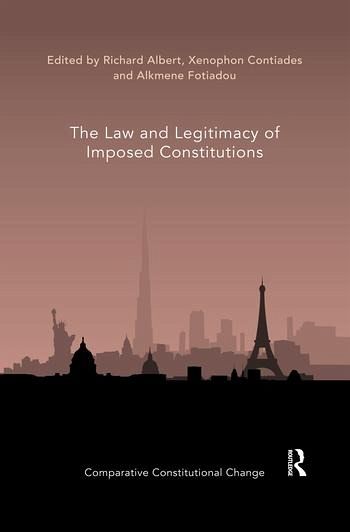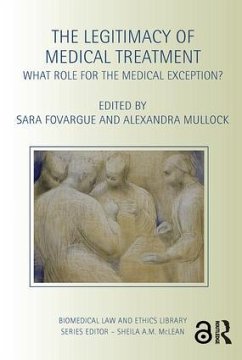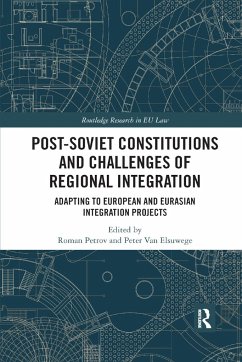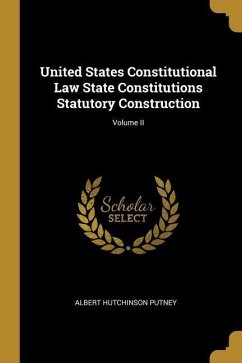
The Law and Legitimacy of Imposed Constitutions
Versandkostenfrei!
Versandfertig in 1-2 Wochen
56,99 €
inkl. MwSt.
Weitere Ausgaben:

PAYBACK Punkte
28 °P sammeln!
Constitutions are often seen as the product of the free will of a people exercising their constituent power. This, however, is not always the case, particularly when it comes to 'imposed constitutions'. In recent years there has been renewed interest in the idea of imposition in constitutional design, but the literature does not yet provide a comprehensive resource to understand the meanings, causes and consequences of an imposed constitution. This volume examines the theoretical and practical questions emerging from what scholars have described as an imposed constitution. A diverse group of c...
Constitutions are often seen as the product of the free will of a people exercising their constituent power. This, however, is not always the case, particularly when it comes to 'imposed constitutions'. In recent years there has been renewed interest in the idea of imposition in constitutional design, but the literature does not yet provide a comprehensive resource to understand the meanings, causes and consequences of an imposed constitution. This volume examines the theoretical and practical questions emerging from what scholars have described as an imposed constitution. A diverse group of contributors interrogates the theory, forms and applications of imposed constitutions with the aim of refining our understanding of this variation on constitution-making. Divided into three parts, this book first considers the conceptualization of imposed constitutions, suggesting definitions, or corrections to the definition, of what exactly an imposed constitution is. The contributors then go on to explore the various ways in which constitutions are, and can be, imposed. The collection concludes by considering imposed constitutions that are currently in place in a number of polities worldwide, problematizing the consequences their imposition has caused. Cases are drawn from a broad range of countries with examples at both the national and supranational level. This book addresses some of the most important issues discussed in contemporary constitutional law: the relationship between constituent and constituted power, the source of constitutional legitimacy, the challenge of foreign and expert intervention and the role of comparative constitutional studies in constitution-making. The volume will be a valuable resource for those interested in the phenomenon of imposed constitutionalism as well as anyone interested in the current trends in the study of comparative constitutional law.














